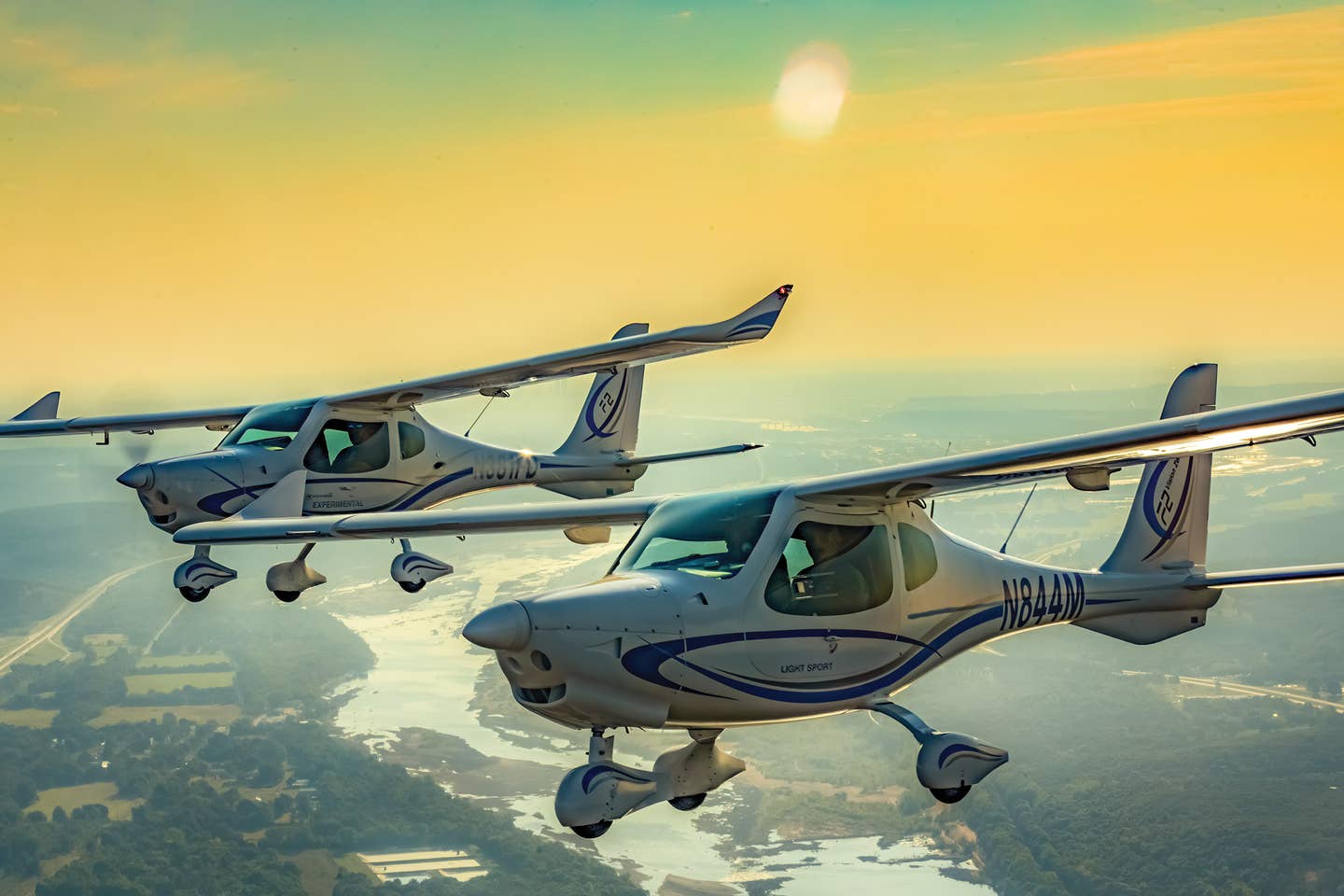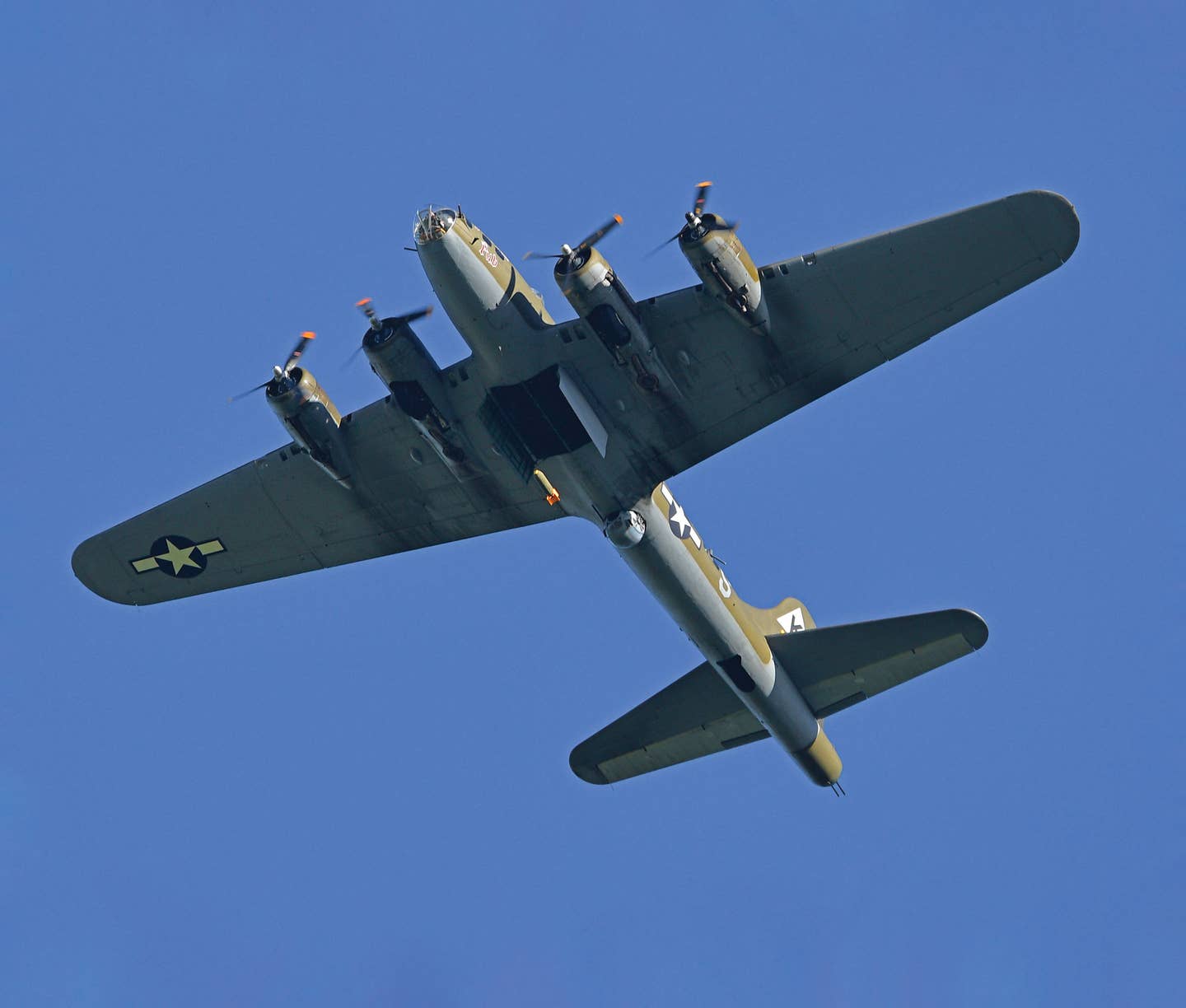 Do you catch yourself gazing skyward when you hear an airplane flying overhead? If you find yourself irresistibly drawn toward aviation, then why not consider making it your career?
Do you catch yourself gazing skyward when you hear an airplane flying overhead? If you find yourself irresistibly drawn toward aviation, then why not consider making it your career?
The aviation field is increasingly diverse and ripe with opportunities for promising careers, whether you thrive upon being aloft or on the ground. If you love to travel and want to be a professional pilot, you have many exciting choices, including (but certainly not limited to) flying for an airline, corporation, charter company or air-taxi operator---or you might prefer to be a military pilot in the service of your country (although new technology and unmanned aerial vehicles may reduce these positions). Plane & Pilot's research shows that several regional and cargo airlines are redoubling their hiring efforts and are attracting new pilots by lowering their entry-level requirements and increasing pay and perks. Corporate-charter and fractional-ownership operations are also hiring; these positions, however, may have higher minimum experience requirements than the airlines.
While some types of careers---such as pilot, mechanic and engineer---continue to be mainstays in the aviation industry, technological advances and sociocultural influences are combining to form new aviation careers. If you like working with people and have keen analytical skills, you might be intrigued by the burgeoning career path in human factors---where you help develop better ways for humans and machines to interact. Or maybe you're more technically oriented and would be interested in the field of aviation-related global security and intelligence.
If your passion for flight simply embraces recreational flying, as opposed to professional flying, yet you'd still like to be involved in some aspect of aviation on a daily, hands-on basis, then perhaps a career in air-traffic management or in aircraft-maintenance science would intrigue you. Or how about devoting your mathematical and design abilities to the challenging career of an aerodynamic, structural or propulsion engineer?
Whichever aviation career path you choose, this is an excellent time to prepare yourself to enter this wide-ranging job market, which is predicted to grow at a healthy rate as baby boomers begin retiring in droves, leaving a looming void that employers will be eager to fill with highly motivated, energetic self-starters. To better understand this impinging deficit in the workforce, consider this: around 77 million babies were born in the United States from 1946 to 1964, and the first of these boomers turned 60 in 2006. According to the U.S. Census Bureau, in 2000, boomers comprised 28% of the U.S. population. Translated into occupational opportunities, 43% of aerospace engineers who are 45 or older will leave their professions during the period between 1998 and 2008, along with 47.9% of airline pilots (Monthly Labor Review, July 2000). In addition to those figures, Aviation Information Resources, predicted in a February 2007 news release that "approximately 8,500 new airline pilot jobs will be created in 2007; 2006 yielded 8,256 new jobs."
An advanced degree from an aviation university will help open the door to your new career---not only through coursework, but also through industry internships and networking. The National Association of Colleges and Employers' Job Outlook 2007 Fall Preview reports, "For the fourth straight year, employers are reporting a double-digit percentage increase in college hiring!employers are predicting an overall increase in college hiring of 17.4 percent."
Ken Polovitz, a private pilot who has been involved with collegiate aviation for more than 20 years, is Assistant Dean of Student Services at the University of North Dakota---Aerospace. Polovitz declares, "In our 40-year history, it's just unbelievable---we've never seen it like this, as far as job opportunities. There's never been a better time to look at careers in aviation, whether you're looking at professional flight, management opportunities or air traffic control. And it'll only get better, as far as the salaries and benefits, because it'll have to---there's always a lag time, but I think we're really embarking on some interesting times in this industry. Along with that comes a cautionary ’however;' you still have to take the steps, do well, work hard and, at this point, if you're looking to make a lot of money fast in this industry, it's not there---that's the reality of today; but it will get better."
Lisa Scott Kollar graduated from Embry-Riddle's professional four-year pilot program, Aeronautical Science, and is now Executive Director of Career Services for Embry-Riddle Aeronautical University. She agrees that the outlook is positive for aviation and aerospace careers, and shares these encouraging words: "Employers are looking for very bright, well-rounded individuals who can take a leadership role and also contribute as a team member. They want students who maintain good GPAs, who gain practical work experience through cooperative education and internships. Young people need to take ownership and responsibility for their career paths and demonstrate personal initiative by taking advantage of self-assessments and all available resources. In addition, students need to conduct their own research so they can get the best education and training and earn the certifications that they need to obtain their goals. And based on my experience, I would like to see more women interested in having a career in aviation and aerospace---there are wonderful opportunities available, and it's exciting to go out and accomplish things that people don't get to do on a regular basis!"
Plane & Pilot recently surveyed schools throughout the country with aviation-related programs, and has compiled a list of the "Top 10 Aviation Careers." These careers soared to the top of our list because they represent lucrative salaries, good working schedules, stimulating challenges, potential growth opportunities, and an interesting variety of positions and geographical locations---all with a projected increase in the number of positions becoming available during the next decade. We've also considered the time and financial resources required for entry into these positions, which are as follows:
1. Pilot (airline, corporate, charter, fractional ownership, air taxi, flight instructor, military, test pilot)
Airline pilots begin their careers with the regionals and may move on to the majors; commercial pilots usually have a lower experience threshold before hiring---and commercial opportunities are growing; and flight instructors often build time to qualify for another pilot career. Military pilots may see fewer opportunities in the future if unmanned aerial vehicles become prevalent in military operations.
Salary range: $15,000--$200,000
2. Airframe & Powerplant Mechanic
Mechanics must be federally certified and are responsible for maintaining aircraft in airworthy and safe operating condition. They may work with jet or reciprocating engines and airframes constructed from sheet metal or composite materials.
Salary range: $25,000--$80,000
3. Air Traffic Controller
Air traffic controllers may work in a high-pressure environment and specialize in ground, departure or en route control as they direct the flow of air traffic. A controller must be federally certified, know federal regulations and be able to quickly implement emergency procedures if necessary.
Salary range: $58,000--$139,000
4. Avionics Technician
An avionics technician repairs, tests and installs aviation equipment. Such technicians must have a knowledge of electronics, computers and math, and they must possess analytical skills to diagnose equipment problems. Vocational school or two years' training/education is typically required.
Salary range: $36,000--$56,000
5. Airline Dispatcher
Dispatchers normally have the authority to dispatch and direct/divert airline flight operations, monitor the progress of flights and advise flight crews of conditions affecting the safety of flights.
Salary range: $20,000--$150,000
6. Meteorologist
A meteorologist needs a strong background in advanced math and physics, and an ability to interpret and analyze atmospheric data effectively in order to create forecasts for flight operations. A college degree is typically required.
Salary range: $34,000--$106,000
7. Structural Engineer
These engineers develop technical solutions for complex structural problems. They must understand engineering principles, interpret drawings and analyze aircraft structures. A college degree is typically required.
Salary range: $50,000--$80,000
8. Electrical Engineer
These engineers design and integrate electrical components and systems. They must understand electrical theory and schematics and possess solid science, math, analytical and trouble-shooting skills. A college degree is typically required.
Salary range: $50,000--$100,000
9. Propulsion Engineer
These engineers work with installation, testing and analysis of aircraft engines and must have knowledge of fuel, exhaust, combustion and other engine systems, as well as science, math and analytical skills. A college degree is typically required.
Salary range: $50,000--$100,000
10. Human Factors & Industrial Design
Individuals in these positions must be able to combine their knowledge of engineering and technology with elements of psychology in order to develop smooth-working interfaces between machines and humans, with a focus on usability, ergonomics and aesthetic product design. A college degree is typically required.
Salary range: $43,000--$134,000
Imagine how fulfilling it would be to keep your passion for aviation alive by waking up every morning to go to a financially rewarding job that impacts the aviation industry in a positive way.

Subscribe to Our Newsletter
Get the latest Plane & Pilot Magazine stories delivered directly to your inbox






